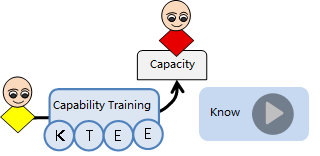|
|
| Successful Case
|
| Continental Automotive Electronics |
| Bosch Automotive Electronics |
| Schaeffler electric drive |
| Joyson Automotive Electronics |
| Huawei Technical Center |
| BMW Automotive Research and Development Center |
| Geely Auto Research Institute |
| Byd Automotive Research Institute |
| |
|
|
|
|
|
|
| Courses > Modeling |
|
 |
|
Principle and application of NCL |
Views 
|
|
 |
|
|
Niki |
| He is an expert in the field of NCL, and has held NCL training in many meteorological research institutes. At present, he is responsible for teaching NCL courses for graduate students in colleges and universities, and has accumulated rich experience in using and teaching NCL |
| |
|
|
| Time Location: Beijing,Shenzhen and Shanghai open classes Based on registration |
| Course CostпЉЪ900 $/Person
|
|
|
|
| Internal Training: You can customize internal training according to the needs of the enterprise. |
|
 |
Authentication Method:
Understand the competency model before training.
Ability evaluation after training:
Online Examination
Ability Analysis, give learning suggestions
The qualified person shall be issued a certificate as proof of vocational skill qualification
|
 |
|
|
| NCAR Command Language (NCL) is a free software developed by the Center for Atmospheric Research (NCAR) for the computation and visualization of scientific data. It has a very powerful file input and output function, can read and write netCDF-3, netCDF-4 classic, HDF4, binary, ASCII data, Supports the reading operation of HDF-EOS2, HDF-EOS5, GRIB1, GRIB2 and OGR data (Shapefile, MapInfo, GMT, TIGER), and basically realizes the seamless connection of all kinds of meteorological data and model data. In terms of data calculation, almost all commonly used calculation methods in atmospheric science research have been integrated by NCL into its built-in functions and programs, such as empirical orthogonal function decomposition (EOF), singular value decomposition (SVD), power spectrum analysis, interpolation of 1-dimensional, 2-dimensional and 3-dimensional data, and so on. In addition, the ability to call external C and Fortran programs makes NCL more efficient in computation. NCL has a world-class level in the visualization of data, provides a rich graphical interface, and has a high degree of customization.
This course will be combined with specific examples, focusing on the use of NCL for data processing and the basic methods of drawing all kinds of main graphics, to improve the practical ability of training personnel. |
| Training Goal |
| Understand the basic functions of NCL;
Write several common data calculation, data read and write scripts;
Familiar with the basic drawing methods of several common graphics;
Master the advanced techniques of using NCL. |
| |
| Training TargetпЉЪMeteorological and environmental systems of provinces and municipalities, autonomous regions, universities, scientific research institutions, enterprises and institutions engaged in meteorological, Marine and environmental research and forecasting, as well as relevant interested experts and scholars. |
| Student Foundation: Have a certain basis for data analysis |
| Teaching Method:
Customized Course + Case Explanation + Group Discussion, 60% Case Explanation, 40% practice exercise |
| Training Content: 2 Days
|
The first day
antemeridian |
NCL introduction and installation;
Basic grammar;
Common built-in functions;
Data processing;
Common drawing methods;
Variable; Operator; Array; Metadata; Array interception; Retention of metadata; Judgment and circulation;
dimsizes, ispan, fspan, ismissing, mask, where, dim_*_n, conform, ind, ndtooned, onedtond, str_*, system, EOF calculation, interpolation function
ASCII data (text document) input and output; Unformatted binary file input/output; NetCDF file input and output; Other data formats supported
Type of output graph; Function to call; Page Settings; Line chart; Contour map; Vector diagram; Add arbitrary polygons, polygons, marks, and characters; Panel plot; Superposition of graphics; WRF drawing introduction; |
The first day
PM |
1. Install the NCL in Windows.
Practical operation 2. Data reading and processing of 160 sites in China; NCEP/NCAR reanalysis data reading and output; WRF output data reading;
Practical operation 3. The acquisition of climate mean field and abnormal field;
Practical operation 4. Selection, synthesis and testing of typical abnormal years;
Practical operation 5. EOF analysis of sea level pressure field; Regression analysis;
Practical operation 6. Time and space filtering of variable field;
7. Vertical interpolation of CAM mode data; Horizontal interpolation of Gaussian lattice points; |
The second day
antemeridian |
One of the advanced use tips
Improve NCl script running efficiency;
Using B-shell language to write NCL script efficiently;
Highlight and auto-fill;
Call an external Fortran program; Custom functions and programs;
Advanced use tips two
Drawing environment setting;
Color palette control;
Vector arrow control;
Mapping in irregular critical areas;
Make animation; function code;
Common problems and debugging techniques;
Prepare powerpoint for the presentation |
| The second day
PM |
Use the evolution of 8.4 variable values over time and add reference lines;
Practical operation 9. Climate average 500 hPa geopotential height field for each season, superimposed geostrophic wind, thickened summer isoline 5860 gpm, shading with polygons in designated areas or drawing boundaries based on topographic data;
Practical operation 10. Vertical profile of the evolution of regional mean height field over time;
Practical operation 11. A bar chart shows the number of times different types of events occurred. |
|
| |
|
|
|
|
|
| Consulting Objective
|
Help build model-driven analysis, design, development, testing |
| Scope Consultation |
Requirements Modeling, Architecture Modeling, Database Modeling, Code Modeling, Test Modeling.
|
| Consultation Method |
Model-driven development process training, modeling and management tool environment construction, combined with actual customer case demonstration, team practice guidance, model evaluation standards formulation, specification formulation |
| Successful Case |
Huawei Research and Development Center, Space Center of Chinese Academy of Sciences, Nanjing 14 Institute, China Mobile Research Institute and so on. |
| For more information:010-62670969пЉМ umlooo@hotmail.com
|
|
|
|
|